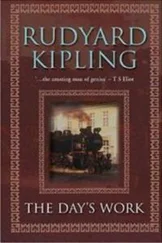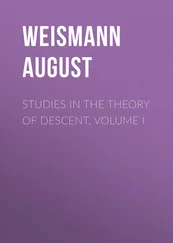Джозеф Аддисон - The Tatler, Volume 1
Здесь есть возможность читать онлайн «Джозеф Аддисон - The Tatler, Volume 1» — ознакомительный отрывок электронной книги совершенно бесплатно, а после прочтения отрывка купить полную версию. В некоторых случаях можно слушать аудио, скачать через торрент в формате fb2 и присутствует краткое содержание. Жанр: foreign_prose, foreign_antique, на английском языке. Описание произведения, (предисловие) а так же отзывы посетителей доступны на портале библиотеки ЛибКат.
- Название:The Tatler, Volume 1
- Автор:
- Жанр:
- Год:неизвестен
- ISBN:нет данных
- Рейтинг книги:4 / 5. Голосов: 1
-
Избранное:Добавить в избранное
- Отзывы:
-
Ваша оценка:
- 80
- 1
- 2
- 3
- 4
- 5
The Tatler, Volume 1: краткое содержание, описание и аннотация
Предлагаем к чтению аннотацию, описание, краткое содержание или предисловие (зависит от того, что написал сам автор книги «The Tatler, Volume 1»). Если вы не нашли необходимую информацию о книге — напишите в комментариях, мы постараемся отыскать её.
The Tatler, Volume 1 — читать онлайн ознакомительный отрывок
Ниже представлен текст книги, разбитый по страницам. Система сохранения места последней прочитанной страницы, позволяет с удобством читать онлайн бесплатно книгу «The Tatler, Volume 1», без необходимости каждый раз заново искать на чём Вы остановились. Поставьте закладку, и сможете в любой момент перейти на страницу, на которой закончили чтение.
Интервал:
Закладка:
71
Thomas Doggett died in 1721. In 1695 he created the character of Ben in Congreve's "Love for Love." Afterwards he was associated with Steele in the management of Drury Lane Theatre.
72
D'Urfey's "Modern Prophets" was produced in 1709. Thomas D'Urfey died in 1723, aged 70, leaving Steele a watch and chain, which his friend wore at the funeral. He wrote many plays and songs. See also Nos. 11, 43.
73
See No. 4.
74
William, First Earl Cadogan (1675-1726), was an able officer who took a very prominent part in Marlborough's campaigns. In January, 1709, he was made lieutenant-general, and he was dangerously wounded at the siege of Mons. He was appointed Lieutenant of the Tower of London in December.
75
The news-paragraphs in the earlier numbers of the Tatler are here preserved for the sake of completeness, but for the most part the details recorded are not of permanent interest, and do not call for comment. The reader may be reminded generally that in the spring of 1709 the French, after the battle of Oudenarde and the fall of Lille, followed by a very severe winter, were driven to think of terms of peace. The negotiations, however, fell through for the time, and the campaign was begun in the Netherlands, where Marlborough and Prince Eugene had an army of 110,000 men. The French were entrenched under Villars between Douay and Béthune, and were strengthened by part of the garrison of Tournay. Marlborough seized the opportunity of attacking the half-defended town, which was obliged to surrender on July 29, after a siege of nineteen days. The French then made a great effort, and brought an army of 100,000 men into the field, with the result that the battle of Malplaquet (Sept. 11) was a very bloody and hard-earned victory for the allies. The subsequent fall of Mons brought the campaign to a close.
76
Marlborough.
77
A merchant entrusted by Lewis XIV. to negotiate terms of peace with the Dutch.
78
General Wood played a distinguished part in the battles of Donauwerth (1704) and Ramilies (1706).
79
See the Introduction.
80
"A Vindication of Isaac Bickerstaff, Esq., against what is objected to him by Mr. Partridge in his Almanack for the present year 1709. By the said Isaac Bickerstaff, Esq., London, printed in the year 1709." (Advertisement in folio issue.) In a pamphlet called "Predictions for the Year 1712. By Isaac Bickerstaff, Esq.; in a Letter to the author of the Oxford Almanack. Printed in the year 1712," this "Vindication" is thus noticed: "I can't but express my resentment against a gentleman who personated me in a paper called 'Mr. Bickerstaff's Vindication.' I'm grieved to find the times should be so very wicked, that one impostor should set up to reform another, and that a false Bickerstaff should write against an imaginary Partridge. And I am heartily concerned that one who shows so much wit, such extreme civility, and writes such a gentlemanlike style, should prefix my name to writings in which there appears so little solidity and no knowledge of the Arabian philosophy. If this paper should be transmitted to posterity (as, perhaps, it might have been by the authority of the name it wears in the front) it might have been a lasting reflection upon me to the end of the world.... Till seeing four volumes of writings—the collected edition of the Tatler —pretended to be mine, and a serious philosopher's name prefixed to papers as free from my solidity as they are full of wit, I thought it high time to vindicate myself, and give the world a taste of my writings; for I am now persuaded 'twill be more for my reputation to convince than to despise mankind."
81
William Harrison (1685-1713) was a favourite with Swift and Addison. He wrote verses, and a continuation of the Tatler , and afterwards obtained office in the diplomatic service; but his health soon broke down, and he died when 28.
82
There is a similar story in Burton's "Anatomy of Melancholy."
83
The Rose Tavern, in Russell Street, adjoined Drury Lane Theatre, and was a favourite resort during and after the play.
84
The Battle of Blenheim.
85
By Wycherley, first acted in 1683.
86
Mrs. Bicknell (or Bignell) was born about 1695. It is not clear whether she was married, or whether the name Bicknell was taken to distinguish her from her sister, Mrs. Young, who was also an actress. We first hear of her acting in 1706; she took parts in which sauciness and coquetry were the chief features. Her last recorded appearance was on the 2nd of April, 1723; and she died in May. She signed a petition "M. Bicknell"; probably her name was Margaret, her mother's name. Steele alludes to her as "pretty Mrs. Bignell" in No. 11, and as his friend in the Guardian , No. 50. She was Miss Prue in Congreve's "Love for Love," and Miss Hoyden in Vanbrugh's "Relapse." In the Spectator (No. 370) Steele praises her dancing.
87
Cibber writes thus of this actress: "Mrs. Mountford, whose second marriage gave her the name of Verbruggen, was mistress of more variety of humour than I ever knew in any one woman actress. This variety, too, was attended with an equal vivacity, which made her excellent in characters extremely different.... She was so fond of humour, in what low part soever to be found, that she would make no scruple of defacing her fair form to come heartily into it." She could act admirably as a Devonshire lass, a pretty fellow, or a fine lady. Mrs. Verbruggen's first husband, the actor Mountford, was killed by Captain Hill, with the assistance of Lord Mohun, in 1692, because Hill, who was making unsuccessful suit to Mrs. Bracegirdle was jealous of her fellow-actor. Mountford was then in his thirty-third year. Mrs. Mountford's second husband, John Verbruggen, is described by Tony Aston as "nature without extravagance." … "That rough diamond shone more bright than all the artful polished brilliants that ever sparkled on our stage." The same writer says of Mrs. Verbruggen: "She was all art, but dressed so nice, it looked like nature. She was the most easy actress in the world. Her maiden name was Percival."
88
Various Societies for the Reformation of Manners were founded in the reign of William III. An "Account" of these societies was published in 1699, and Defoe often wrote on the subject. In 1708 the Society for London and Westminster secured the conviction of 3299 "lewd and scandalous" persons, guilty of Sunday trading swearing, drunkenness, &c.
89
See Steele's apology to Blackmore, author of this poem, in No. 14. Sir Richard Blackmore (died 1729) was a Whig physician who wrote epics on religious and other subjects, and was often at loggerheads with the actors and wits. Though he was not a poet, Addison and Steele praised him on account of the religious tone of his work (see Spectator , Nos. 6, 339).
90
Vanderbank, or as his father sometimes wrote his name, Vandrebanc, was a son of Peter Vanderbank, a Parisian, who came into England with Gascar the painter, about 1674, and died at Bradfield, in Hertfordshire, in 1697. His father was admired for the softness of his prints, and still more for the size of them, some of his heads being the largest that had then appeared in England; but the prices he received by no means compensated for the time employed on his works, and he was reduced to want, and died at the house of Mr. Forester, his brother-in-law. After his death, his widow sold his plates to one Brown, a print-seller, who made a great profit by them. His eldest son had some share in the theatre at Dublin; the youngest, William, was a poor labourer, who gave an account of his father and the family to Vertue. The person mentioned in this paper was probably his father's name-son, and might be, as Walpole conjectures, an engraver. Whatever concern the father might have had in any manufacture of tapestry, he could not be the person meant here, for at this time he had been dead above ten years. The suite of tapestry, in the Duke of Ancaster's sale, with Vanderbank's name to it, mentioned by Walpole, must therefore be supposed to belong to the son, who is said, upon the authority of the French translator of the Tatler , to have represented nature very happily in works of tapestry, and to have been a man inimitable in this way. (See Walpole's "Anecdotes of Painting," 1782, vol. v. p. 166.)
Читать дальшеИнтервал:
Закладка:
Похожие книги на «The Tatler, Volume 1»
Представляем Вашему вниманию похожие книги на «The Tatler, Volume 1» списком для выбора. Мы отобрали схожую по названию и смыслу литературу в надежде предоставить читателям больше вариантов отыскать новые, интересные, ещё непрочитанные произведения.
Обсуждение, отзывы о книге «The Tatler, Volume 1» и просто собственные мнения читателей. Оставьте ваши комментарии, напишите, что Вы думаете о произведении, его смысле или главных героях. Укажите что конкретно понравилось, а что нет, и почему Вы так считаете.












